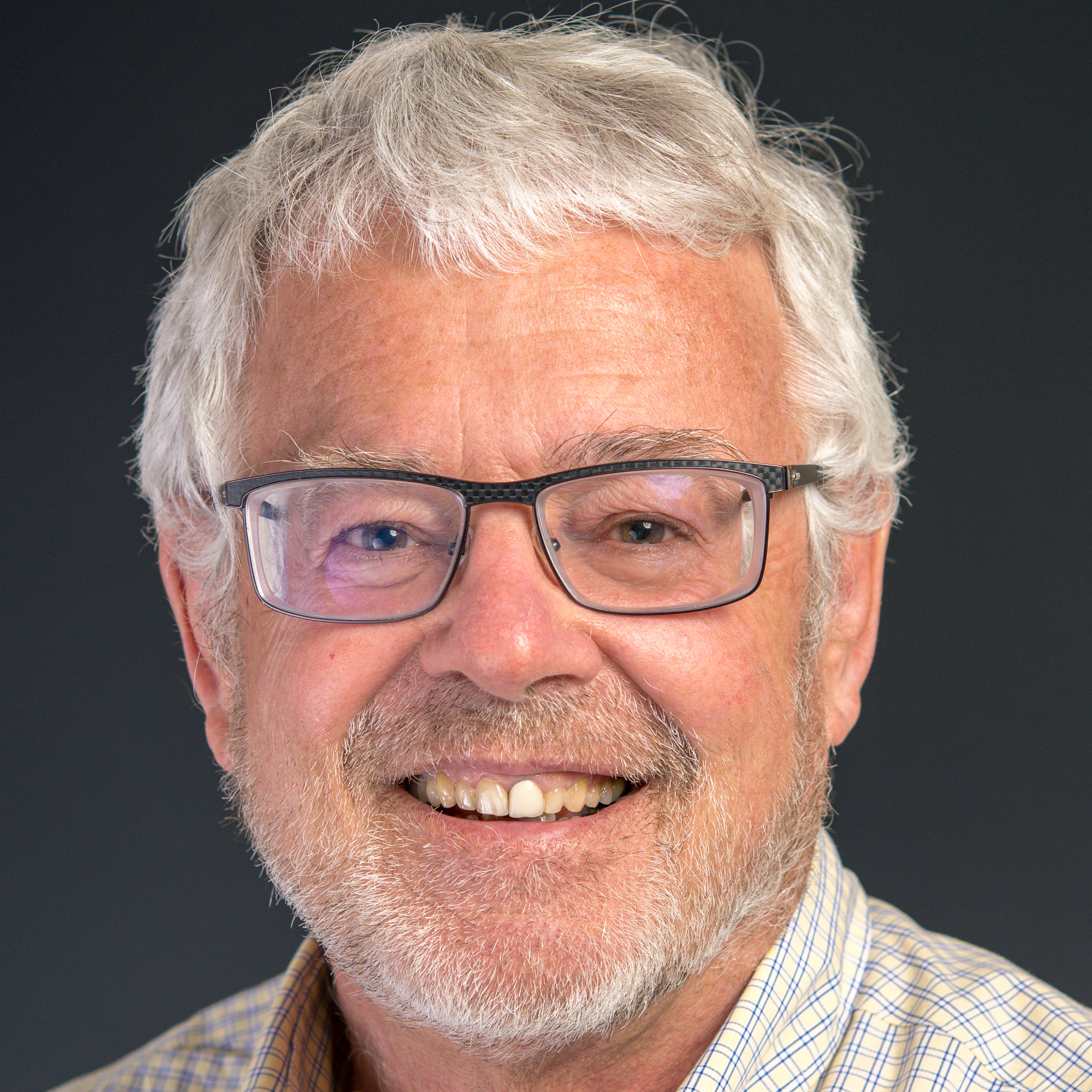Allan MacDonald
- Professor
- Sid W. Richardson Foundation Regents Chair in Physics #1
- Physics

Contact Information
Biography
As an undergraduate student at St. Francis Xavier University in Nova Scotia, Canada (that’s where I'm from), I started out thinking that I was interested in mathematics. As I learned a bit about math and science, I eventually realized that what attracted me most was applications of mathematics. I remember being turned on when I started to understand that people really could build mathematical models of the world around us that correctly predicted completely unexpected and unknown behaviors. And I knew that building the models was fun. I had a few ideas for graduate studies including economics which I loved as an undergraduate. I chose physics because my girlfriend at the time, now my spouse, worked at a hospital attached to the University of Toronto’s downtown campus that was across the street from the physics department. It turned out to be a doubly good choice for me.
Prior to joining the faculty of UT Austin in 2000 (that also turned out to be a good choice for me), I spent a number of very enjoyable years working at the National Research Council of Canada’s Research Labs and at Indiana University. I have now been working on the theory of condensed matter for more than 30 years. I still wake up in the morning anticipating the pleasure and privilege of spending my day thinking about new possibilities for unexpected and unknown behavior in condensed matter, and working with interesting young people finding their own directions in science.
Research
My primary research interests center on the influence of electron-electron interactions on the electronic properties of metals and semiconductors. My research is driven, for the most part, by experiment rather than by theoretical technique. My technical interests cover a broad swath within the condensed matter theory subfield, ranging from pragmatic techniques for electronic structure calculations on the more traditional side to the more trendy field theoretical approaches. In the following paragraph, I briefly summarize the topics on which I have worked.
Research Areas
- Quantum Information or Computing
- Materials Science
Centers and Institutes
- Texas Materials Institute
- Center for Dynamics & Control of Materials: an NSF MRSEC
- Texas Quantum Institute
Education
- Ph.D., University of Toronto (1978)
Publications
383. J. Jernandez-Rossier, M. Braum, A. S. Nunez, and A.H. MacDonald, “Influence of a Uniform Current on Collective Magnetization Dynamics in a Ferromagnetic Metal”, Phys Rev B 69 174412 (2004).
384. A. Cohovein, C.M. Canali, and A.H. MacDonald, “Orbital and spin contributions to the SgS-tensors in metal nanopartaicles”, Phys Rev B 69 (4): 045411.
385. Diego Frustaglia, Jurgen Konig, and Allan H. MacDonald, “Theory of spin waves in diluted-magnetic-semiconductor quantum wells”, Phys Rev B 70, 045205, (2004)..
386. J. Fernandez-Rossier, C. Peirmarocchi, P. Chen, A.H. MacDonald and L.J. Sham, “Coherently photo-induced ferromagnetism in diluted magnetic semiconductors”, Phys Rev Lett 93, 127201 (2004).
387. E. Papa and A.H. MacDonald, “Interactions suppress Quasiparticle Tunneling at Hall Bar Constrictions”, cond-mat 0403288.
388. A. S. Nunez and A.H. MacDonald, “Spin Transfer Without Spin Conservation”, cond-mat 0403710.
389. J.P. Eisenstein and A.H. MacDonald, “Bose-Einstein Condensation of Excitons in Bilayer Electron Systems”, cond-mat 0404113.
390. Q.Q. Wang, A. Muller, P. Bianucci, E. Rossi, Q.K. Xue, T. Takagahara, C. Piermarocchi, A.H. MacDonald, C.K. Shih, “Decoherence processes during active manipulation of excitonic qubits in semiconductor quantum dots”, cond-mat 0404465.
391. K. Yang, A.H. MacDonald, “Vortex Lattice Structure of Fulder-Ferrell-LarkinOvchinnikov Superconductors” cond-mat 0404580.
Books:
1. A.H. MacDonald, A Perspective on the Quantum Hall Effect (Jack Books, Milan, 1989.)
Awards
- President's Scholarship, St. Francis Xavier University, 1969–1973
- Governor-General's Medal, St. Francis Xavier University, 1973 (Highest academic standing in graduating class)
- NSERC 1967 Science Scholarship, University of Toronto, 1973–1977
- Herzberg Medal, 1987 (Awarded by the Canadian Association of Physicists)
- Fellow of the American Physical Society, 1989
